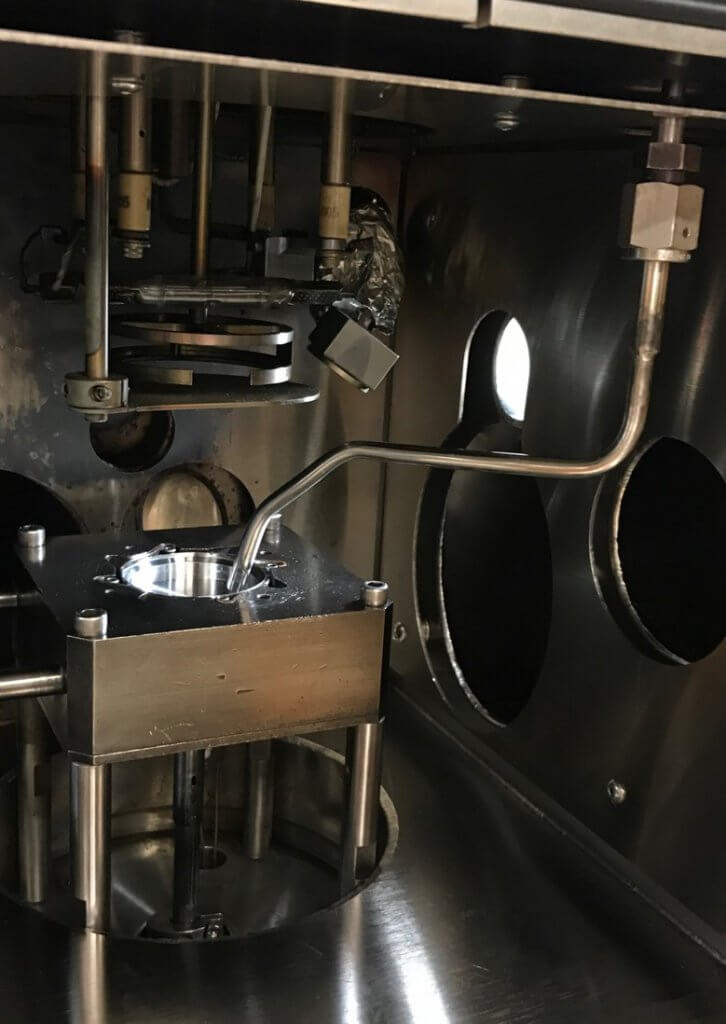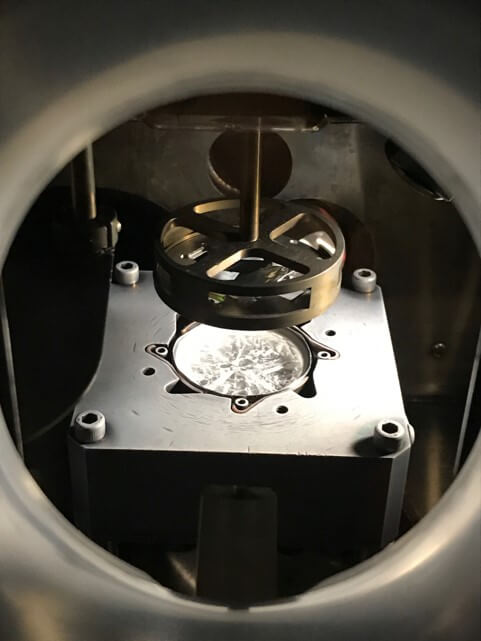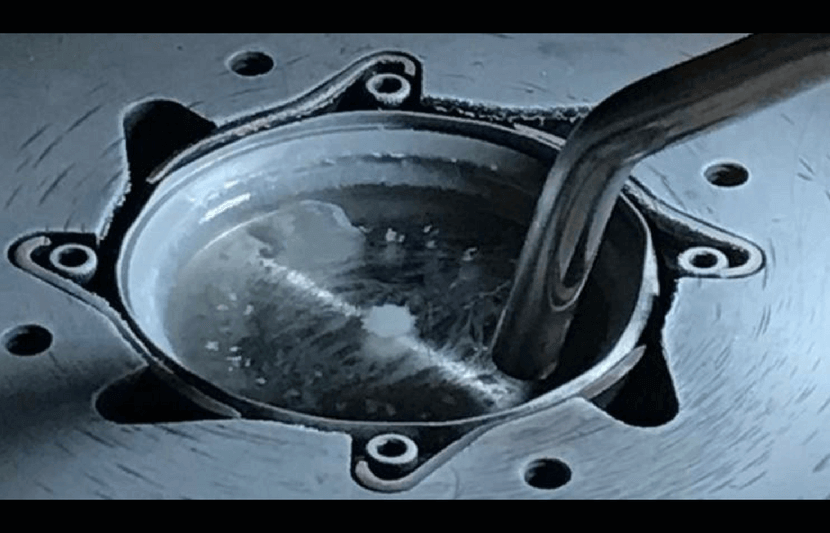A team of researchers at Duke University has developed an efficient method to create hybrid thin-film materials, which could aid in the development of solar cells, light emitting diodes, photodetectors, and optoelectronic devices.
The researchers claim that this method, which uses perovskites, allows for the creation of solar materials “that would otherwise be difficult or impossible to make.”
Perovskites are a class of materials that, when mixed with the correct elements, have a crystalline structure that make them very attractive in solar energy research. The material’s popularity is primarily due to its ability to absorb light and transfer its energy.
The full research is published in the journal ACS Energy Letters.
To conduct their research, the scientists worked with methylammonium lead iodide (MAPbl3), the most commonly used perovskite in solar energy today. MAPbl3 has been proven to convert light energy just as efficiently as the leading solar panels, and uses much less material.
MAPbl3 has been created by using standard industry production techniques, but has had issues with durability and is difficult to change in shape or size.
In this research, scientists sought to find a way to revolutionize the manufacturing methods of perovskites and effectively mix delicate organic and inorganic compounds in a complex crystalline structure to make them more applicable in solar energy and optoelectronics.
The new technique called Resonant Infrared Matrix-Assisted Pulsed Laser Evaporation (RIP-MAPLE) involves freezing a solution that contains all of the necessary molecules to create the perovskite, taking that frozen material, placing it in a vacuum chamber, and blasting it with a laser.

The laser effectively vaporizes the frozen material, which then floats upwards and covers an object hanging above. When the material is gathered at surface, it is blasted with heat. The materials then begin to crystallize and form the thin film.

“Matrix-assisted pulsed laser evaporation is a gentle technique for the thin-film deposition of organic and hybrid materials,” said Adrienne Stiff-Roberts, associate professor of electrical and computer engineering at Duke. “By using a low-energy, infrared laser to evaporate a solvent matrix only, the absorption of laser energy is completely decoupled from the target material dissolved within the matrix. As a result, thermally-sensitive organic molecules can be deposited without damage and incorporated into complex structures.”
This new method is much more efficient than traditional industry laser techniques, for it only requires a small fraction of the organic materials to reach the same final product, Stiff-Roberts said in a statement.
As of now, there are no perovskite-based solar cells on the market, but that is subject to change in the coming years because many companies are interested in the idea.
The researchers, however, have further goals for their development.
“With this demonstration of the RIP-MAPLE technology, we hope to open a whole new world of of materials to the solar cell industry,” David Mitzi, the Simon Family Professor of Mechanical Engineering and Materials Science at Duke, said in a statement. “We also think these materials could be useful for other applications, such as light-emitting diodes, photodetectors, and X-ray detectors.”
Stiff-Roberts said that this process works on any substrate material, so it is versatile and works for a broad range of material systems.
“The next steps in this research are to better understand the formation of hybrid perovskite crystals during RIP-MAPLE deposition and to characterize material properties of hybrid perovskites comprising more complex organic molecules,” said Stiff-Roberts.
“The desired goal is to use MAPLE deposition to help hybrid perovskites mature into a new semiconductor technology for optoelectronic devices,” she continued.



